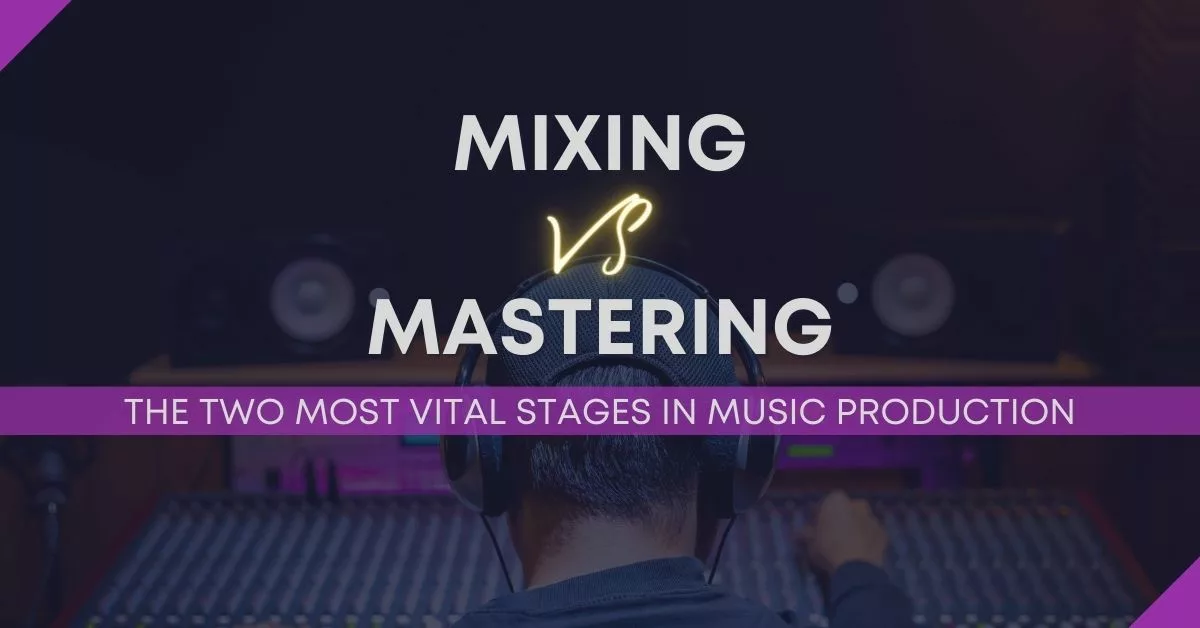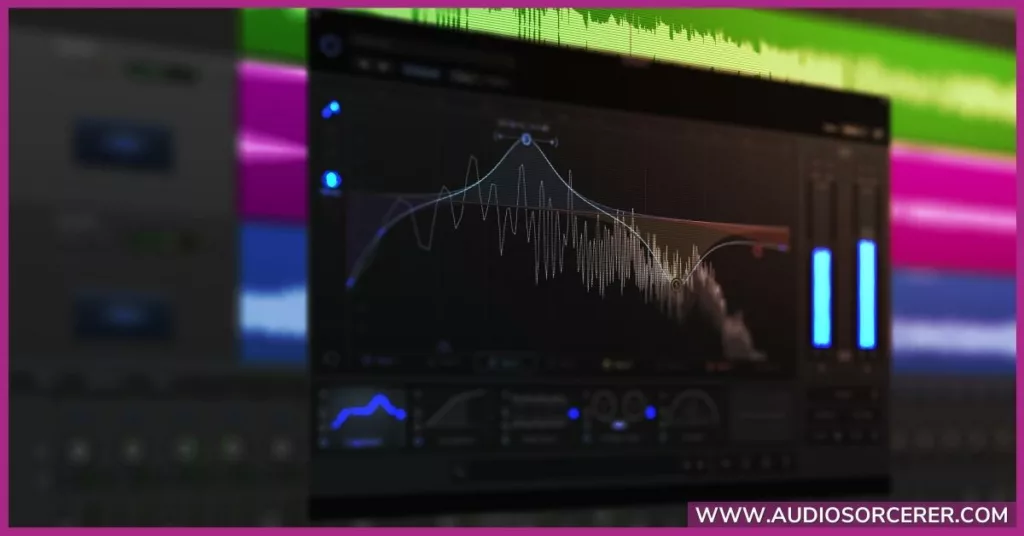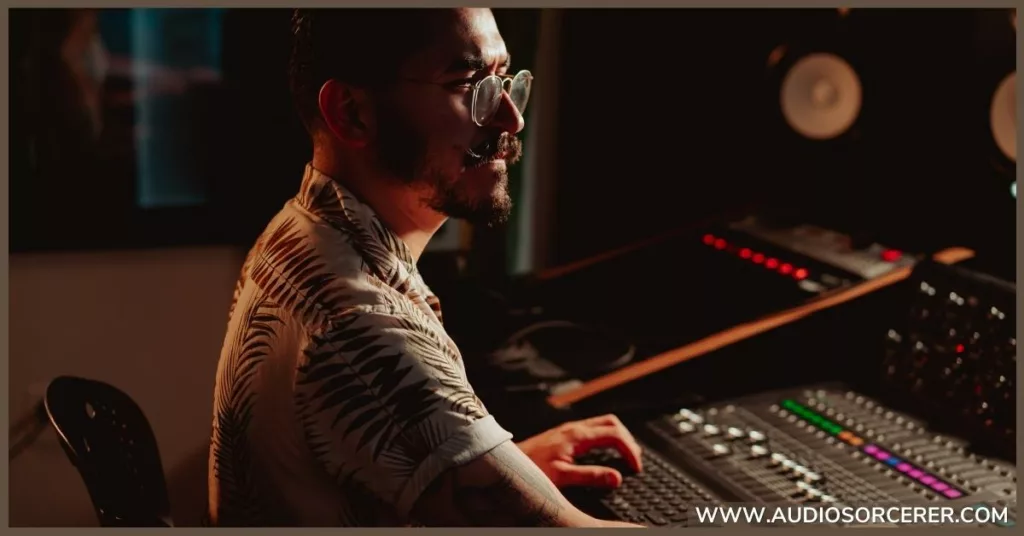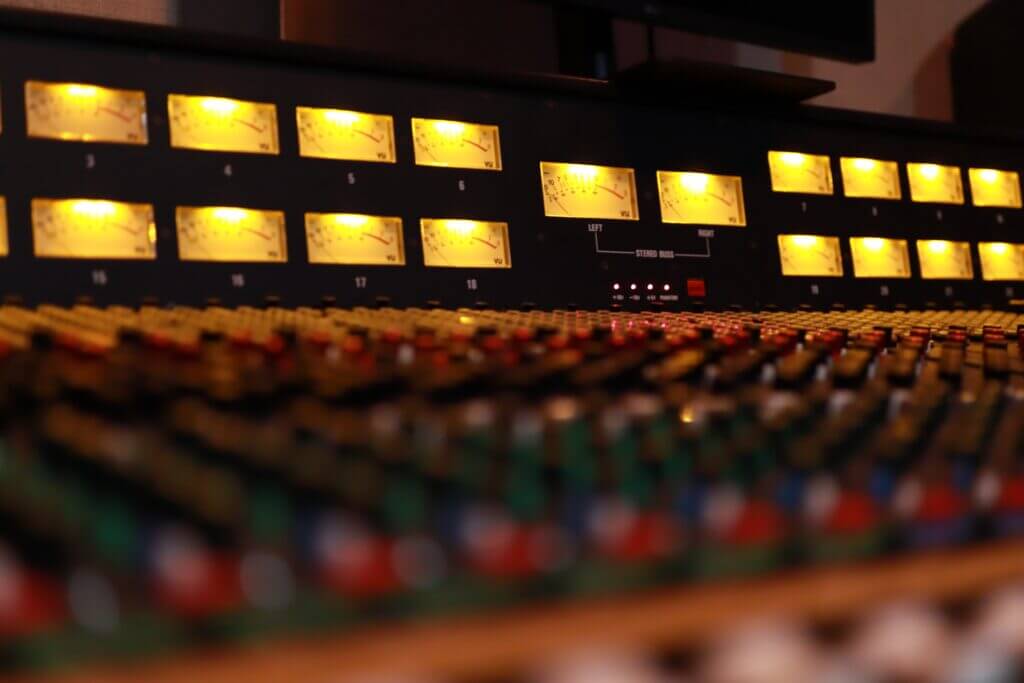
Welcome to the fascinating world of music production, where the journey from a basic song idea to a professionally produced track is filled with numerous stages, each as important as the other. Two of the most crucial, yet often misunderstood, stages in this process are Mixing and Mastering. These are the invisible pillars that support and enhance the music we all love, enabling it to reach its full potential.
However, if you're new to audio production or just a music lover, you might find yourself asking - what exactly are mixing and mastering? Why are they so vital in the process of music production? Are they the same or different, and if so, how?
In this blog post, we'll demystify these two key processes, breaking down their roles, objectives, and techniques. We will illustrate how both mixing and mastering work hand-in-hand to create the final polished sound that resonates with audiences. Whether you're an aspiring music producer, an audio engineer, or a music enthusiast, this guide will provide a comprehensive understanding of these processes. So, let's delve into the art and science of mixing vs mastering, the final frontiers of music production.

At its core, mixing is the process where multiple sound sources are combined into one or more channels. In music production, this means combining individual tracks in a song - vocals, guitars, drums, keyboards, and other instruments - into a stereo two-channel format. But, the process is much more than just adjusting volumes and panning instruments left or right.
The mixing process aims to balance the elements of a song, enhance the best parts, and create a cohesive, engaging soundscape that brings the musical vision to life. The objective is to guide the listener's ear and evoke the desired emotional response. The mix engineer shapes the sound by controlling volume levels, panning instruments across the stereo field, adding effects, and more.
A mixing engineer is like a chef, blending different ingredients to achieve a perfect recipe. They have a critical ear and a deep understanding of audio science. They use their knowledge of audio tools and techniques to shape the raw, recorded tracks into a work of art.
There are several techniques involved in mixing. Some of these include:
Balancing: This involves adjusting the volume levels of multiple tracks to ensure no element overpowers another. By balancing individual instruments, the goal is for each sound to be heard clearly in the mix.
Panning: This is the process of spreading out the instruments across the stereo field from left to right. It helps to create a sense of width and space.
EQ (Equalization): EQ allows mixing engineers to boost or cut specific frequency ranges in a sound source. This can help make instruments sound clearer and prevent them from clashing with each other.
Compression: Compression helps to control the dynamic range of a track, ensuring that the volume remains consistent.
Adding Effects: Effects like reverb, delay, chorus, and others can be used to add character and depth to instruments in a mix.
A perfect example of successful mixing can be seen in Michael Jackson's "Billie Jean." Bruce Swedien, the mix engineer, created a mix that balanced all elements perfectly, with each instrument occupying its own space in the stereo field. The kick drum and bass line are prominent, providing a strong rhythmic foundation, while Jackson's vocals sit clearly above everything, driving the song forward.
Related Article: What Is Mixing In Music And Why It's Important For You To Know?

Mastering, often considered the "final polish" in music production, is the stage that follows mixing. It is the process that ensures the final mix is ready for distribution and consistent playback on all systems and media formats.
The main goal of mastering is to bring balance, consistency, and continuity to a mix. It ensures that the audio will sound good across different playback systems, from high-end speakers to earbuds, car stereos to smart speakers. Mastering also adds a final professional touch, making the track as good as it can possibly be before it reaches the listener.
A mastering engineer applies a trained, objective ear to the mixed track. They provide a fresh perspective, identifying any issues or discrepancies that may have been overlooked during the mixing stage. The mastering engineer uses specialized tools and a finely tuned listening environment to bring out the best in the mix.
Mastering involves several key techniques such as:
Equalization: This is used to balance the frequency spectrum and make subtle adjustments to the overall tonal balance of the stereo track.
Compression and Limiting: These are used to control the dynamic range and ensure the track achieves a competitive loudness while retaining its dynamics.
Stereo Widening: This technique enhances the stereo image of the mix, making it sound wider and more immersive.
Sequencing and Spacing: In the context of an album or EP, the mastering engineer sets the right amount of space between tracks and ensures the songs flow into each other seamlessly. NOTE: This is less important today as most listeners are using streaming services as opposed to CDs.
A classic example of exceptional mastering work is Daft Punk's "Random Access Memories." Mastered by Bob Ludwig, one of the most respected mastering engineers in the world, the album is known for its dynamic range and sonic clarity, which shines across various playback systems. The mastered song sound of the album's standout track, "Get Lucky," is often cited as an example of excellent modern mastering.
Related Article: What Is Audio Mastering And How Can Your Music Benefit From It?
Now that we've explored the individual facets of mixing and mastering, let's delve into a side-by-side comparison to understand the differences, similarities, and why both these tasks are essential in the audio production process.
Process: Mixing involves balancing and enhancing individual tracks (like vocals, drums, guitars, etc.), while mastering is about refining the final mix and ensuring consistency across different playback systems.
Objective: The goal of mixing is to create a balanced, cohesive mix where every element can be heard clearly and contributes to the overall feel of the song. On the other hand, mastering aims to optimize the mix for all listening environments and formats, ensuring that the final product is polished and professional.
Tools and Techniques: While both stages use tools like EQ and compression, they are used differently. In mixing, these tools are often used creatively to shape the sound of individual tracks. In mastering, they are used more subtly to enhance the entire mix or to fix issues within it.
Improving Sound Quality: Both mixing and mastering work towards enhancing the overall sound quality of the music, ensuring that the end product sounds the best it can.
Technical and Creative Aspects: Both processes involve technical knowledge and creative decision-making. While the tools and techniques used may differ, the goal is the same - to serve the music.
Involvement of a Skilled Engineer: Both stages ideally involve a skilled engineer with a keen ear and deep understanding of audio aesthetics.
When it comes to understanding mixing vs mastering, the order of these processes is crucial. Mixing must come before mastering because each stage builds upon the work done in the previous one. Mixing prepares the individual tracks for the mastering stage, where the final adjustments are made before the music is distributed. Trying to master before mixing would be like trying to put a roof on a house before building the walls - it simply wouldn't work.

Finding the right professional to mix and master your music can make a significant difference in the quality of your final product. They can bring out the best in your songs and ensure they are ready for listeners' ears. Here's what to consider when choosing a mixing or mastering engineer.
Experience: Look for someone with experience in your genre. They should have a portfolio of work that demonstrates their skills and style.
Communication: A good engineer will listen to your vision and communicate clearly about what they can offer. They should be open to feedback and willing to make revisions if necessary.
Equipment and Software: They should have access to professional-grade equipment and software. This includes high-quality monitors, a well-treated listening environment, and industry-standard audio processing tools.
Testimonials and References: Positive reviews from previous clients can indicate the engineer's professionalism and quality of work. Don't hesitate to ask for references.
Research: Do your homework. Look up engineers online, listen to their samples, and read reviews from past clients.
Consultation: Once you have a shortlist, reach out to them. Discuss your project, ask questions, and get a feel for whether they'd be a good fit.
Budget: Keep your budget in mind. The most expensive engineer isn't always the best fit for every project, and there are talented professionals at all price points.
Trial: If possible, consider doing a test project with the engineer. This could be an entire song or a smaller piece of work. This will give you a sense of their capabilities and whether they're right for you.

With the advent of affordable home studio equipment and a plethora of educational resources available online, DIY mixing and mastering has become increasingly popular. While this approach can offer control and cost savings, it also comes with its own set of challenges.
If you're considering the DIY route, there are several tools, plugins, and software you'll need to get started:
Digital Audio Workstation (DAW): This is the software you'll use to record, edit, mix, and master your music. Examples include Pro Tools, Logic Pro, Ableton Live, and FL Studio.
Audio Interface: This device allows you to record audio into your computer and monitor the sound during playback.
Studio Monitors and Headphones: Accurate monitoring is essential for making informed decisions during mixing and mastering.
Plugins: These are software versions of audio processing tools like EQs, compressors, and reverbs.
Acoustic Treatment: This helps to control the sound in your room, making it more suitable for mixing and mastering.
While DIY mixing and mastering can be rewarding, there are common pitfalls to avoid:
Inadequate Monitoring: Without accurate monitoring, it's hard to make good decisions about your mix or master. Ensure your room is well treated and you have quality studio monitors or headphones.
Overprocessing: It's easy to get carried away with plugins and effects. Remember that less is often more when it comes to mixing and mastering.
Lack of Perspective: When you're close to a project, it can be hard to maintain objectivity. It's often helpful to take breaks and revisit your mix or master with fresh ears.
Loudness Wars: Don't fall into the trap of making your music as loud as possible at the expense of dynamic range. Loudness is not the same as quality.
In the symphony of music production, mixing and mastering play pivotal roles, harmonizing with each other to create the perfect soundtrack. The interplay between these two crucial stages is what brings the artist's vision to life. They ensure that the music resonates with listeners and translates correctly across all playback platforms.
Understanding the roles and importance of mixing vs mastering is a giant step towards appreciating the art of music production. As an artist, this knowledge can help you make informed decisions on whether to choose an engineer or take the DIY route. At a minimum, you will know the journey your music takes from recording to release.
Now, with this newfound knowledge, you can approach your next project with a deeper understanding and an elevated perspective. So, go ahead and dive into the incredible world of music production. Let the magic of mixing and mastering enhance your music and enrich your creative journey.
While it's possible for the same person to do both, it's often beneficial to have different engineers for each process. A fresh pair of ears in the mastering stage can catch any issues that might have been overlooked during mixing.
Yes, with the right tools, software, and knowledge, you can mix and master your own music. However, it requires practice to develop the necessary skills, and an objective ear can often provide a more balanced perspective.
Mastering ensures your mix will sound good on all playback systems, not just the system it was mixed on. It also provides a final check for any issues in the mix and can help your track achieve a competitive loudness level.
You'll need a Digital Audio Workstation (DAW) for both mixing and mastering. Popular DAWs include Pro Tools, Studio One, Cubase, and FL Studio. You'll also need plugins for effects and processing, such as EQs, compressors, and reverbs.
The time it takes to mix and master a song can vary widely depending on the complexity of the track, the engineer's process, and the desired outcome. A single song can take anywhere from a few hours to several days for each process.
"Some of the links within this article are affiliate links. These links are from various companies such as Amazon. This means if you click on any of these links and purchase the item or service, I will receive an affiliate commission. This is at no cost to you and the money gets invested back into Audio Sorcerer LLC."